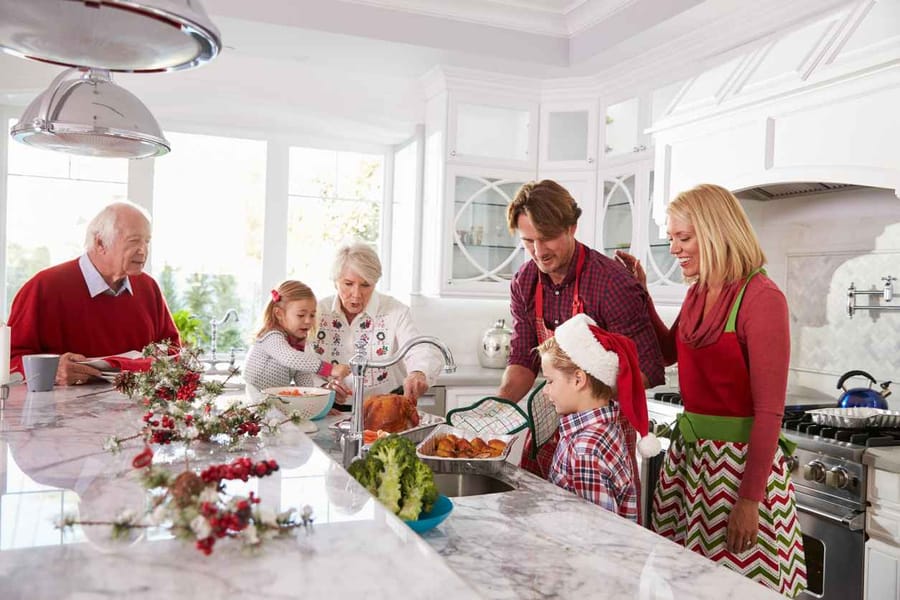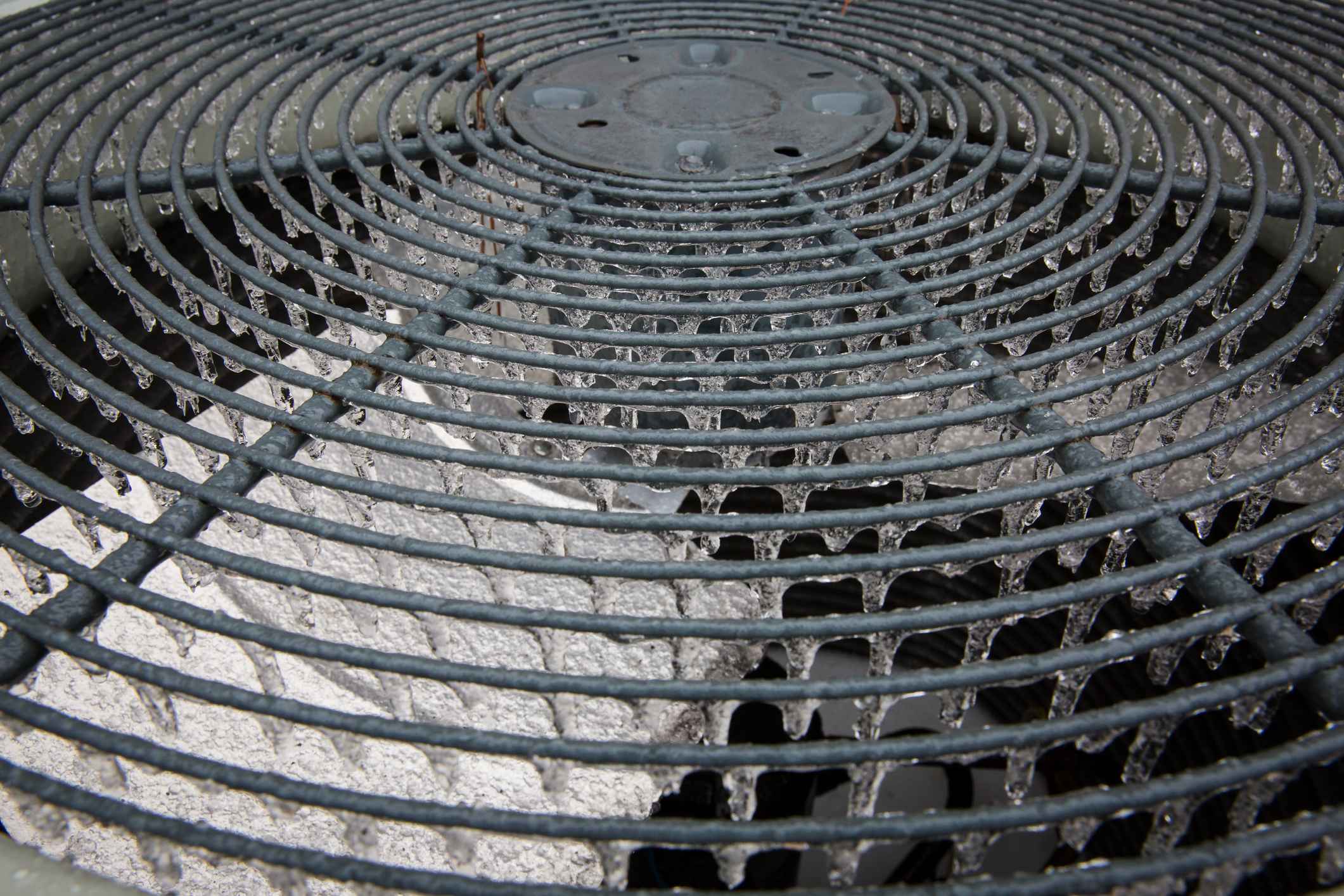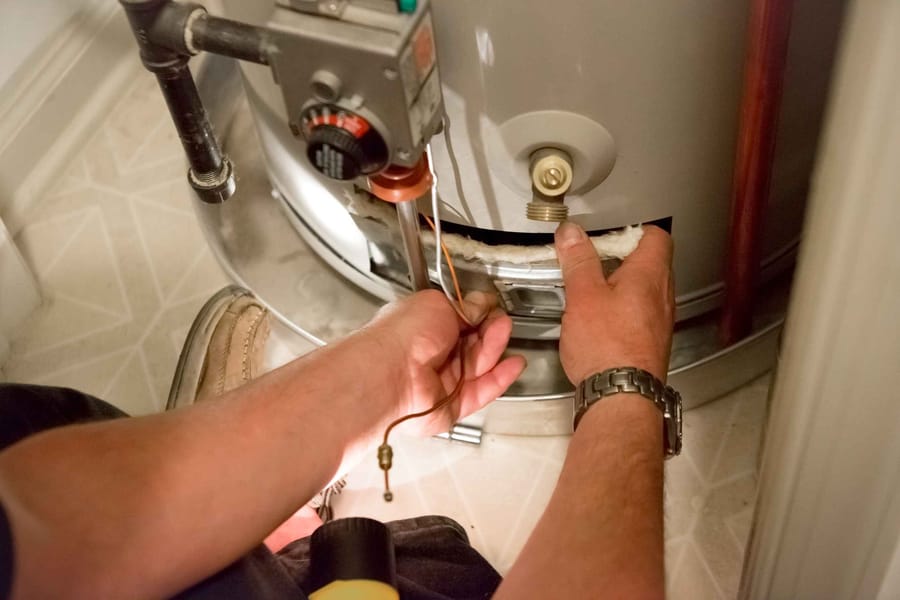How to Prevent Kitchen Drain Clogs During Holiday Cooking in South Carolina
When You’re in a Bind, Call Vines!
3434+ 5 Star Reviews
Give Us A Call



Holiday cooking brings family, food, and festive traditions into your South Carolina home, but it also puts more pressure on your kitchen plumbing. Between large meals, frequent dishwashing, and heavy use of the sink and garbage disposal, drains are more likely to clog during the holiday season. Grease, starchy foods, and cooking scraps build up quickly and can cause slow drains, foul odors, or complete blockages right when you need your kitchen most.
Understanding how to prevent kitchen drain clogs during holiday cooking helps keep your plumbing running smoothly and your celebrations stress free. This blog covers the foods you should never put down the drain, how to use your disposal correctly, simple maintenance habits, and when to call a professional before a small issue becomes an emergency.
Why Holiday Cooking Causes More Drain Clogs
Holiday meals often involve richer foods, larger portions, and more time spent in the kitchen. All of this creates the perfect conditions for kitchen drain problems in South Carolina homes. Between grease from roasted meats, leftover starchy foods, and increased dishwashing, drains can become overwhelmed quickly.
Heavy Use of Starchy Foods Like Potatoes and Pasta
Starches expand, thicken, and become sticky inside pipes. Common holiday culprits include:
-
Mashed potatoes
-
Rice and pasta
-
Stuffing mix
-
Pie crust scraps
These foods cling to pipe walls and combine with grease to form heavy blockages.
Oils, Gravies, and Fats Entering the Drain
Holiday cooking produces a lot of fats that harden as they cool. Problem items include:
-
Turkey drippings and pan grease
-
Gravy and sauces
-
Butter and shortening
-
Bacon grease
Even small amounts of fat accumulate over time and create stubborn clogs.
Foods You Should Never Put Down a Kitchen Drain
Many holiday dishes involve ingredients that harden, swell, or cling to pipe walls. Even with a garbage disposal, some foods should stay far away from your drain. Avoiding these items helps prevent blockages that often show up during or right after big family meals.
Grease, Fats, and Cooking Oils
These substances cool and solidify inside your pipes, creating thick, sticky buildup. Examples include:
-
Turkey or ham drippings
-
Bacon grease
-
Butter and margarine
-
Cooking oils from frying
-
Gravy fats
Instead, pour fats into a heat safe container and discard them in the trash once cooled.
Coffee Grounds, Eggshells, Rice, and Pasta
These items either expand, break into sharp particles, or create heavy sludge inside plumbing lines:
-
Coffee grounds form dense, cement like clumps
-
Eggshells create gritty fragments that trap other debris
-
Rice and pasta expand with water
-
Flour and dough turn into glue like paste
Keeping these ingredients out of your drain dramatically reduces clog risk.
How to Use Your Garbage Disposal Properly
Your garbage disposal is a useful tool during holiday cooking, but it is not designed to handle everything. Using it correctly helps prevent clogs, protects your pipes, and keeps food debris moving smoothly through your plumbing system.
Running Cold Water Before and After Use
Cold water helps harden oils and fats so the disposal can break them into smaller pieces before they move through the pipe. Make sure to:
-
Run cold water for 10 to 15 seconds before turning on the disposal
-
Keep the water running the entire time the disposal is on
-
Let the water continue for another 10 seconds after shutting it off
This helps flush all particles through the drain line.
Avoiding Fibrous or Hard Scraps
Certain food scraps can wrap around the disposal blades or strain the motor. Do not put these items into the disposal:
-
Celery strings
-
Onion skins
-
Corn husks
-
Bones
-
Fruit pits
Place these scraps in the garbage or compost instead to protect your disposal and plumbing.
Preventing Grease Buildup in South Carolina Homes
Grease is one of the biggest causes of kitchen drain clogs, especially during the holidays when rich meals and heavy cooking are common. In South Carolina’s cooler winter temperatures, grease solidifies even faster inside pipes, creating thick blockages that trap other food debris. Preventing grease from entering your drain is one of the most effective ways to avoid holiday plumbing emergencies.
Using Containers for Leftover Grease
Instead of rinsing grease down the drain, store and dispose of it safely. Try these easy methods:
-
Pour grease into a metal can or disposable container
-
Let it cool and solidify on the counter
-
Seal the container and throw it in the trash
-
Use paper towels to wipe excess grease from pans before washing
These simple steps keep grease out of your plumbing system.
Wiping Pans Before Washing to Reduce Buildup
Even a small amount of grease can cause buildup in your kitchen drain. Before washing cookware:
-
Scrape food scraps into the trash
-
Wipe pans, skillets, and baking dishes with a paper towel
-
Absorb leftover oils with napkins or a rag designated for grease cleanup
This reduces the amount of fat entering the drain and helps prevent clogs from forming.
How to Maintain Healthy Drain Flow During the Holidays
With more cooking, cleaning, and kitchen traffic, your drains need extra attention during the holiday season. Simple maintenance habits can help keep water flowing smoothly and prevent buildup in your plumbing lines.
Hot Water Flushes and Enzyme Treatments
Keeping your drains clean does not require harsh chemicals. Instead, try these gentle, effective methods:
-
Run hot water down the drain after washing dishes to help break up residue
-
Use enzyme based drain cleaners once a week to naturally dissolve organic buildup
-
Pour a mixture of hot water and a small amount of dish soap down the drain to lift grease film
These steps help maintain healthy flow without damaging pipes.
Avoiding Chemical Drain Cleaners
Chemical drain cleaners can harm your plumbing and are not recommended for regular use. They can:
-
Erode older metal pipes
-
Damage seals and gaskets
-
Create dangerous fumes
-
Harden clog material over time
Stick to natural or professional solutions for safe, long term drain care.
Signs Your Kitchen Drain Is Starting to Clog
Clogs rarely appear out of nowhere. Most kitchen drain blockages show early warning signs that something is beginning to build up inside your pipes. Catching these symptoms early can prevent a full holiday plumbing emergency.
Slow Draining Water
If water begins to drain more slowly than usual, it often means:
-
Grease is solidifying inside the pipe
-
Starches are forming a sticky layer
-
Food debris is building up around bends or connections
-
The garbage disposal is struggling to break down scraps
Even slight slowdowns should be addressed right away.
Gurgling Sounds and Food Residue Smells
When air or wastewater cannot move freely, the drain will make noise or release odors. Common clues include:
-
Gurgling or bubbling sounds after the sink drains
-
Sewer or sour food smells coming from the drain
-
Odors that return even after cleaning the sink
-
Water backing up into the sink during dishwasher cycles
These signs indicate a clog is forming deeper inside the drain line.
When to Call a Professional Plumber
Some holiday drain issues can be handled with simple home maintenance, but others require expert attention. Calling a plumber early can prevent messy backups, water damage, or complete drain failure during the busiest time of the year.
Stubborn or Recurring Clogs
If your drain keeps slowing down or blocking even after basic cleaning, it may indicate:
-
Hardened grease deep inside the drain
-
A partial blockage in the main kitchen line
-
Food buildup that home methods cannot break apart
-
A failing or jammed garbage disposal
Recurring clogs signal a deeper problem that needs professional tools and expertise.
Backup Affecting Multiple Drains
If more than one drain in your kitchen or nearby areas starts backing up, it usually means:
-
A clog has formed in the main household drain
-
Grease has solidified further in the plumbing system
-
Tree roots or pipe damage are restricting flow
Multiple backups should always be handled by a licensed plumber to prevent major damage.
Keep Your Kitchen Drains Clear With South Carolina’s Trusted Plumbing Experts
Holiday cooking should be enjoyable, not stressful. When you take steps to prevent grease buildup, avoid problematic food scraps, and maintain healthy drain flow, you can keep your kitchen running smoothly throughout the season. Addressing early warning signs and knowing when to call for help ensures your plumbing stays reliable during the busiest time of year.
Vines Heating & Air, Plumbing, Restoration provides fast, professional drain cleaning and plumbing services for homeowners across South Carolina. Whether you are dealing with a stubborn clog, a slow drain, or a holiday emergency, our team is ready to help.
Contact Vines today to schedule a kitchen drain inspection or service appointment and enjoy worry free cooking this season.
Schedule Service Today
For immediate assistance in Horry & Georgetown Counties, please call us or schedule service.


